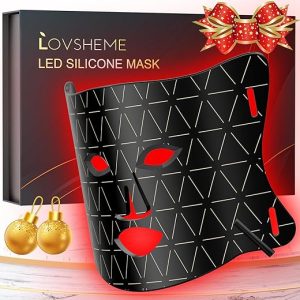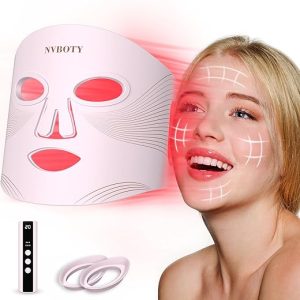Taking care of your skin is more than just a beauty routine; it’s an essential part of maintaining overall health and well-being. Our skin is the largest organ of the body and serves as the first line of defense against environmental factors such as pollutants, bacteria, and UV radiation.
At the heart of skincare is the use of a good face moisturizer, a product that provides vital hydration and nourishment to your skin. Moisturizers help to lock in moisture, prevent dryness, and create a protective barrier that keeps your skin looking and feeling its best.
This blog post aims to highlight the numerous benefits of incorporating face moisturizer into your daily routine. We’ll delve into why hydration is crucial for maintaining a healthy skin barrier, how it can prevent premature aging, reduce the appearance of fine lines and wrinkles, and improve your skin’s overall texture and tone.
Furthermore, we’ll discuss the different types of moisturizers available, from lightweight gels to rich creams, and help you choose the right product for your skin type—whether it’s oily, dry, combination, or sensitive.
Whether you’re a skincare novice or a seasoned pro, you’ll find valuable insights to enhance your skincare regimen. From understanding the ingredients that provide optimal hydration to tips on how to apply moisturizer effectively, this guide will equip you with the knowledge to achieve and maintain healthy, radiant skin.
So, dive in and discover how a simple step like using a face moisturizer can make a significant difference in your skincare journey.
Why Moisturizing is Essential
Importance of Skin Hydration
Skin hydration plays a pivotal role in ensuring your skin remains healthy and resilient. Proper hydration not only gives your skin a radiant and plump appearance but also supports its ability to heal and repair itself.
Hydrated skin is better equipped to fend off irritants and infections, reducing the likelihood of breakouts and other skin issues. When your skin receives the moisture it needs, it functions more efficiently, maintaining a balanced and even complexion.
Role in Maintaining Skin Barrier
The skin barrier acts as the body’s first line of defense against external factors such as pollutants, bacteria, and harsh weather conditions. A well-moisturized skin barrier is robust and less prone to damage.
Moisturizers help to reinforce the skin barrier by providing essential lipids and hydration, ensuring it remains intact and effective. This protective barrier prevents the loss of essential nutrients and moisture from the skin, thereby maintaining overall skin health and preventing common issues like sensitivity and irritation.
Prevention of Dryness and Flakiness
One of the most immediate benefits of using a face moisturizer is the prevention of dryness and flakiness. When the skin lacks moisture, it can become dry, tight, and uncomfortable, leading to the formation of dry patches and flaky skin. Regular use of a good moisturizer replenishes the skin’s moisture levels, leaving it soft, smooth, and supple.
By sealing in hydration, moisturizers prevent water loss from the skin’s surface, ensuring that your skin stays hydrated and nourished throughout the day. This not only improves the appearance of your skin but also enhances its overall health and function.
Key Benefits of Using Face Moisturizer
Hydration and Nourishment
Moisturizers are essential in providing much-needed hydration and nourishment to your skin. By consistently using a face moisturizer, you can significantly improve your skin’s texture, making it feel smoother and healthier. Moisturizers infuse the skin with essential hydration, ensuring that it remains supple and resilient.
Additionally, many moisturizers are enriched with essential nutrients such as vitamins and antioxidants, which nourish the skin and promote cellular health and regeneration.
Anti-Aging Properties
One of the compelling benefits of face moisturizers is their anti-aging properties. Regularly hydrating the skin helps to reduce the appearance of fine lines and wrinkles, as well-moisturized skin is less prone to developing these signs of aging.
Moisturizers boost the skin’s elasticity and firmness by promoting collagen production, a crucial protein that helps maintain the skin’s structure and youthful appearance. By integrating a moisturizer with anti-aging benefits into your skincare routine, you can help your skin remain vibrant and youthful over time.
Protection Against Environmental Damage
Moisturizers also play a critical role in shielding your skin from environmental damage. Daily exposure to pollutants, UV rays, and other environmental stressors can weaken the skin’s barrier, leading to premature aging and other skin issues.
A good face moisturizer creates a protective barrier, safeguarding your skin from harmful elements. By incorporating ingredients like antioxidants and SPF, moisturizers can neutralize free radicals and provide UV protection, ensuring your skin remains healthy and protected throughout the day.
Choosing the Right Moisturizer
Understanding Your Skin Type
Selecting the perfect moisturizer starts with understanding your unique skin type. Knowing whether your skin is oily, dry, combination, or sensitive will help you choose a product that meets your specific needs. Here’s a brief guide to help you identify your skin type:
- Oily Skin: If your skin appears shiny and feels greasy, especially in the T-zone (forehead, nose, and chin), you likely have oily skin. This type is prone to acne and enlarged pores.
- Dry Skin: If your skin feels tight, looks flaky, or has rough patches, you probably have dry skin. This type needs intense hydration to combat dryness.
- Combination Skin: If you notice that your T-zone is oily while your cheeks are dry, you have combination skin. This type requires a balanced approach to moisturization.
- Sensitive Skin: If your skin is easily irritated, red, or itchy when exposed to new products or environmental changes, you have sensitive skin. This type needs gentle and soothing products.
Ingredients to Look For
Choosing a moisturizer with the right ingredients is crucial for achieving the best results. Here are some key ingredients to look for based on your skin type:
1. For Oily Skin:
- Hyaluronic Acid: Provides lightweight hydration without clogging pores.
- Niacinamide: Regulates oil production and minimizes pores.
- Salicylic Acid: Helps to unclog pores and prevent acne.
2. For Dry Skin:
- Ceramides: Restore the skin barrier and retain moisture.
- Glycerin and Squalane: Draw moisture into the skin and keep it hydrated.
- Shea Butter: Offers intense hydration and softens the skin.
3. For Combination Skin:
- Hyaluronic Acid: Hydrates without adding excess oil.
- Ceramides: Strengthen the skin barrier across all areas.
- Aloe Vera: Soothes and hydrates without heaviness.
4. For Sensitive Skin:
- Aloe Vera and Chamomile: Calms and soothes irritation.
- Oat Extract: Provides anti-inflammatory benefits.
- Fragrance-Free and Hypoallergenic Ingredients: Minimize the risk of irritation.
Recommendations for Different Skin Types
Here are some tailored recommendations to help you choose the best moisturizer for your skin type:
- Oily Skin: Look for oil-free, water-based formulas like gel moisturizers. Products such as Neutrogena Hydro Boost Water Gel or La Roche-Posay Effaclar Mat Moisturizer are excellent choices.
- Dry Skin: Opt for rich, creamy moisturizers that provide deep hydration. Consider using CeraVe Moisturizing Cream or Eucerin Advanced Repair Cream.
- Combination Skin: Choose a lightweight lotion that balances hydration. Products like Clinique Dramatically Different Hydrating Jelly or Neutrogena Oil-Free Moisture for Combination Skin work well.
- Sensitive Skin: Use gentle, fragrance-free products designed for sensitive skin. Try Aveeno Ultra-Calming Daily Moisturizer or Vanicream Moisturizing Cream.
By understanding your skin type and selecting moisturizers with appropriate ingredients, you can achieve optimal hydration and maintain healthy, radiant skin. Remember, the right moisturizer can make all the difference in your skincare journey.
How to Incorporate Moisturizer into Your Routine
Step-by-step Guide
Integrating a moisturizer into your daily skincare regimen is simple and can significantly improve your skin’s health and appearance. Follow these easy steps for optimal results:
- Cleanse Your Face: Start with a clean slate by washing your face with a gentle cleanser appropriate for your skin type. This helps remove dirt, oil, and impurities.
- Apply Toner (Optional): If you use a toner, apply it after cleansing. Toner can help balance your skin’s pH and prepare it to absorb moisture more effectively.
- Use Serum or Treatment (Optional): If you incorporate serums or treatments in your routine, apply them at this stage. These products often contain potent ingredients that target specific skin concerns.
- Apply Moisturizer: With clean fingertips, apply an appropriate amount of moisturizer to your face. Gently massage it into your skin using upward and outward motions to promote absorption and stimulate circulation.
- Apply Sunscreen (Morning Routine): In the morning, follow your moisturizer with a broad-spectrum sunscreen to protect your skin from UV damage.
Best Times to Apply Moisturizer
To maximize the effectiveness of your moisturizer, it’s crucial to apply it at the right times:
- Morning: Apply moisturizer in the morning to hydrate your skin and create a protective barrier that lasts throughout the day. Make sure to follow up with sunscreen for UV protection.
- Evening: Apply moisturizer in the evening to repair and nourish your skin overnight. Nighttime is an optimal period for skin regeneration, making it the ideal time to use a richer, more intensive moisturizer.
- After Cleansing: Always apply moisturizer after cleansing your face. This locking-in of moisture helps maintain skin hydration and prevents dryness.
- Post-Exfoliation or Mask: If you’ve just exfoliated or applied a mask, your skin might feel drier and more sensitive. Applying a good moisturizer immediately helps restore and soothe your skin.
Tips for Maximizing Effectiveness
Here are some helpful tips to ensure your moisturizer works best for you:
- Apply to Damp Skin: For enhanced absorption, apply your moisturizer to slightly damp skin. This helps lock in extra moisture.
- Don’t Forget Your Neck and Décolleté: Extend your moisturizer application to your neck and décolleté to keep these areas hydrated and youthful.
- Use the Right Amount: Avoid overuse. A pea-sized amount is usually sufficient for the face. Excessive use can lead to clogged pores and a greasy feeling.
- Pair with Hydrating Ingredients: Use products that complement your moisturizer, such as hydrating serums with hyaluronic acid or glycerin.
- Consistency is Key: Make moisturizing a regular part of your skincare routine. Consistent use will provide the best results.
- Store Properly: Keep your moisturizer in a cool, dry place to maintain its effectiveness. Avoid exposing it to high temperatures or direct sunlight.
By following these steps and tips, you can effectively incorporate moisturizer into your skincare routine, ensuring your skin stays hydrated, healthy, and radiant.
Common Myths about Moisturizers
Myth 1: Oily Skin Doesn’t Need Moisturizer
Debunking this myth is crucial for understanding proper skincare. Even if you have oily skin, it still requires hydration. Oily skin can actually become oilier if it is deprived of moisture because the skin compensates for the lack of hydration by producing more oil. Using a lightweight, non-comedogenic moisturizer can effectively hydrate your skin without making it greasy.
Myth 2: Moisturizers Cause Acne
While it’s true that some moisturizers can contribute to acne if they contain pore-clogging ingredients, not all moisturizers are to blame. Opt for non-comedogenic, oil-free formulations specifically designed for acne-prone skin to keep your skin hydrated without causing breakouts. Ingredients like salicylic acid and benzoyl peroxide in some moisturizers can even help combat acne.
Myth 3: Expensive Moisturizers Are Better
Price does not always equate to quality. While some high-end moisturizers contain premium ingredients and advanced formulations, there are plenty of affordable options with effective ingredients that can provide excellent results. Reading ingredient lists and understanding what works best for your skin type is more important than the price tag.
Myth 4: Natural Ingredients Are Always Better
Natural doesn’t always mean better or safer. Some natural ingredients can cause irritation or allergic reactions in some individuals. It’s important to know that synthetic ingredients can be highly effective and safe. What matters most is how your skin responds to the ingredients, whether natural or synthetic. Always patch-test any new product to ensure it suits your skin without causing adverse reactions.
Myth 5: You Don’t Need Moisturizer If You Use Serum
Serums and moisturizers serve different purposes in a skincare routine. Serums contain concentrated active ingredients targeting specific concerns like wrinkles, dark spots, or hydration. Moisturizers, on the other hand, work to seal in the serum’s benefits and provide a protective barrier to lock in moisture. Using both ensures comprehensive skin care and optimal results.
Myth 6: You Should Skip Moisturizer in Humid Weather
Even in humid conditions, your skin can lose moisture. Skipping moisturizer can lead to dehydration and imbalance in your skin’s barrier. It’s advisable to use a lightweight, hydrating moisturizer that won’t feel heavy on the skin, ensuring that your skin stays hydrated and protected, regardless of the humidity levels.
By addressing these common myths and concerns, you can make more informed decisions about your skincare routine and ensure your skin gets the nourishment and care it needs.
Conclusion
In summary, incorporating a face moisturizer into your daily routine offers numerous benefits, from maintaining skin hydration and promoting a healthy complexion to preventing premature aging and enhancing overall skin barrier function.
By choosing the right type of moisturizer for your skin and applying it consistently at optimal times, you can ensure your skin remains healthy, radiant, and well-protected.
We encourage you to make moisturizing a regular part of your skincare regimen and to experience the positive changes firsthand. Feel free to share your experiences with different moisturizers, ask questions, and join the conversation in the comments below. Your insights and inquiries are always welcome!




















